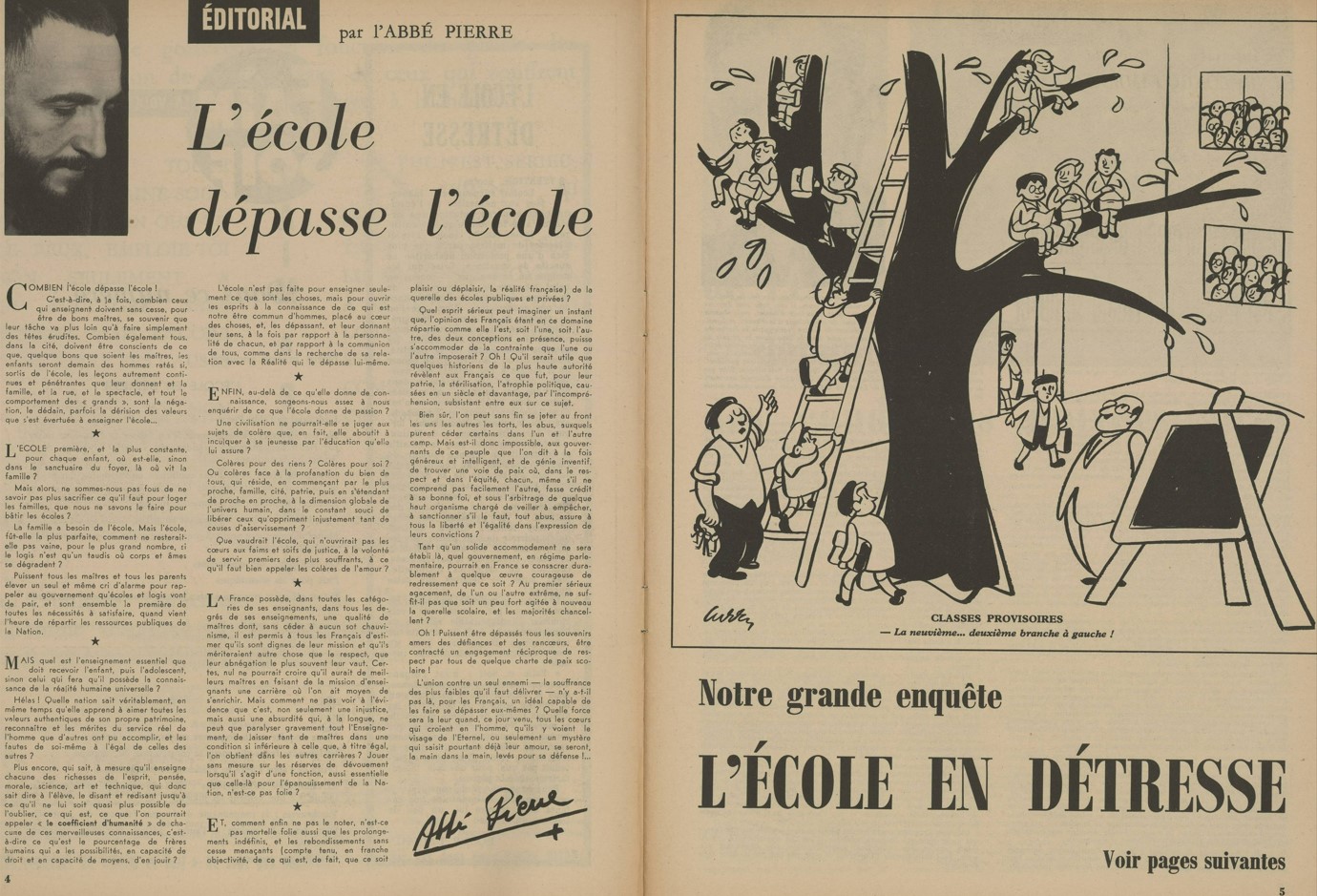Abbé Pierre’s editorial - Faim & Soif 15, October 1956
During a Christmas special edition of the review Faim & Soif, Abbé Pierre reminds us in strong terms, one year after his resounding appeal in Winter 1954, of the importance of fighting against poverty and helping the most vulnerable, with special emphasis on not losing the energy of our initial ‘uprising’. He also talks about consolidating the Emmaus movement and the emerging links with organisations in other countries, such as Canada, Argentina, Peru, Japan, Denmark, India and a number of countries in Africa, at a time when the struggles led by the Emmaus movement started to resound internationally.
Abbé Pierre’s editorial - Faim & Soif 15, October 1956
School beyond the classroom
How far school goes beyond the classroom!
That is to say, how must those who teach unceasingly, in order to be good teachers, remember that their task goes further than simply making scholarly minds. How too, everyone, in the city, must be aware that, no matter how good the teachers are, today’s children will be tomorrow’s failures if, when they leave school, the continuous and penetrating lessons they receive from their family, from the streets, from what they see, and from all the behaviour of "grown-ups", are in denial, disdain and sometimes derision of the values that school strives to teach...
♦
Where is the first and most constant school for each child, if not in the sanctuary of the home, where the family lives?
Isn’t it madness, then, that we don’t know to give what’s needed to house families any more than we do to build schools?
The family needs school. But wouldn’t even the most perfect school be worthless if, for the great majority, home is a hovel where body and soul waste away?
Let all teachers and parents raise one unanimous cry of alarm, to remind the government that school and home go hand in hand, and together are the first of all necessities to be met when the time comes to distribute the public resources of the Nation.
♦
What is the essential education that child, then adolescent, must receive, if not that which will put into their possession knowledge of universal human reality?
Alas! What nation is truly able, as it learns to love all the authentic values of its own heritage, to recognise both the merits of the real service to mankind that others have been able to accomplish, and its own faults, equal to those of others?
Moreover, who – in the same way as they teach of the riches of the mind, thought, morals, science, art and technique – who knows how to tell the pupil, repeating again and again until it is almost impossible to forget, what that thing is, which might be called the "human coefficient" of each of these marvelous pieces of knowledge; that is to say, what is the percentage of our human brothers who have the possibilities, in legal capacity and in financial capacity, to enjoy them?
♦
School is not made only to teach what things are, but to open minds to an awareness of what makes our common humanity, located at the heart of things and surpassing them, giving them their meaning, both in relation to individual personality and in relation to shared communion, just as it surpasses itself in search of its relationship with the Reality.
Finally, beyond the knowledge school gives, do we think enough to ask ourselves what the school gives of passion?
Abbé Pierre’s editorial
Faim & Soif n.15
October 1956
